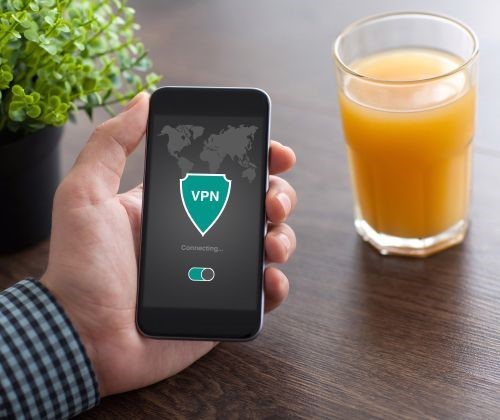
App reviews, Guides and Tutorials
 Beginner's guide to virtual private networks
Beginner's guide to virtual private networks
Using a VPN to bypass a government firewall or access a region that's restricted by a geo-locked service or your Internet service provider is a fine skill to have. Your data may be exposed even if you are using a virtual private network, though, and you may discover that data transfer speeds aren't great. I have put together this guide to highlight what you need to know about using a VPN, so you can stay private while surfing the web, streaming video, or doing whatever else you might want to do online.
If you try to watch a movie while visiting a foreign country, you may discover that your favorite video platform doesn't work there. If this happens, the service provider has used your device's IP address to determine if you reside in another region, and then it has blocked your access. However, by making use of a VPN, your device will be connected to a global network that has a huge pool of IP addresses from all around the globe, giving you the option to access geo-restricted content as well.
Also, when using public Wi-Fi networks, their owners - or hackers who have managed to get access to the networks - may be able to monitor your activity. By using a VPN, you can prevent this from happening, because virtual private networks create encrypted data communication tunnels, which transfer Internet data back and forth securely.
VPNs can be split into three major categories:
- Static VPNs are used by companies which need Internet connections that have low latencies and good speeds. In this case, the service provider uses a single, stable IP address for each user.
- Dynamic VPNs. These virtual networks use several server locations and can keep lots of users online at once, giving them access to a large pool of IPs.
- Multi-connection VPNs allow users to have several connections, which are active at the same time. To give you an example, NordVPN allows its users to connect up to six devices at once without compromising their privacy and security.
Believe it or not, there are lots of bad VPNs out there. Using the wrong virtual private network service could leave your online activities exposed, because not all VPN services offer the same levels of privacy, anonymity and ease of use. While some providers use strong encryption methods and keep traffic logs for themselves, others may not operate within the privacy philosophy you think you've paid for. So, make sure you choose a virtual private network service that is logging the minimal amount of information it needs to operate.
Best VPN services will have all the features you're interested in, offering the level of protection you need, and the level of privacy that you're comfortable with. Most companies offer desktop clients, but if you are a heavy smartphone user, you want to ensure that the platform also includes a mobile app which has all the features you need, and is patched regularly, as soon as new security flaws are uncovered.
The good news is that most virtual private network providers offer free trials for their services, so you can test them for 15-30 days and determine if a particular VPN does all you need. Also, with an annual contract, you will often get a 10-30% discount. NordVPN is my VPN of choice, and its makers offer even larger discounts; you won't be able to find them on their site, though. Still, it is quite easy to find a special promo code on the top deal sites.